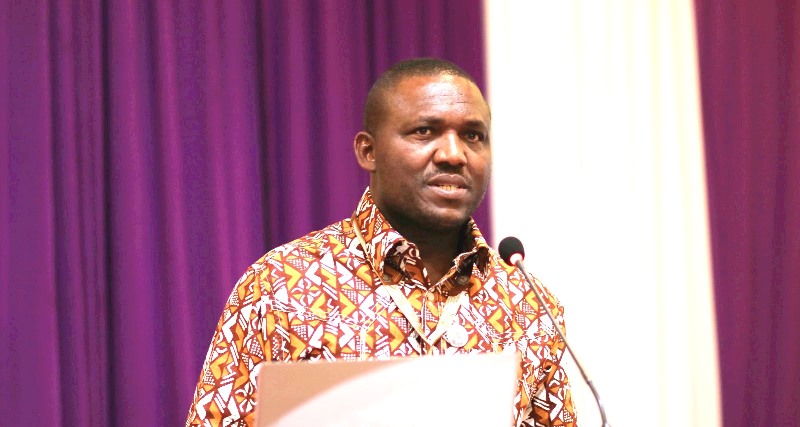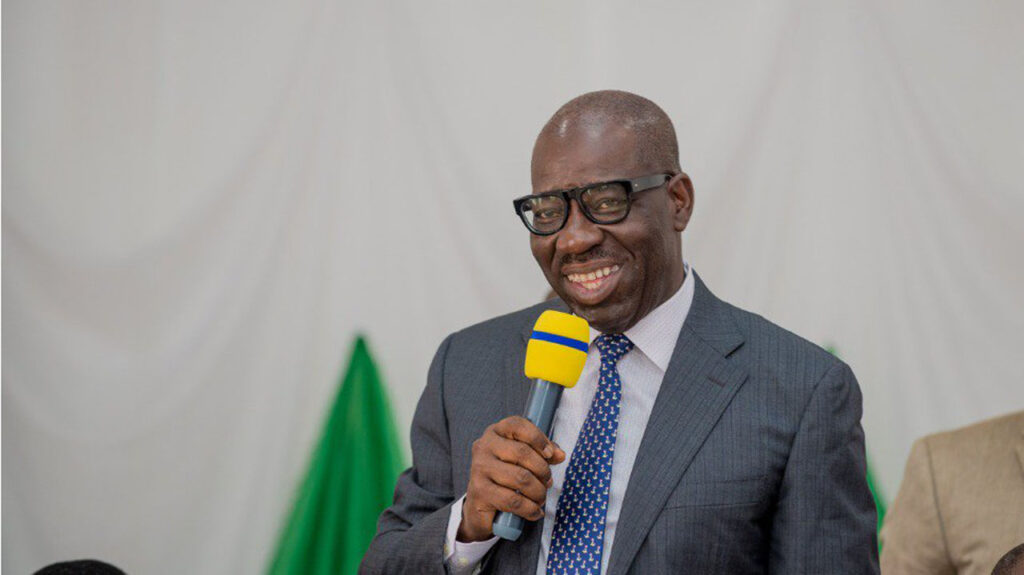
As workers anticipate the commencement of negotiations for the national minimum wage, it is pertinent that there is a mutual understanding among all stakeholders to ensure that they arrive at a minimum wage that is commensurate with the prevailing cost of living, writes GLORIA NWAFOR.
2023 was a truly unpleasant year, dominated by the removal of fuel subsidies, higher inflation that affected real disposable incomes and devaluation of the naira, among others.
Specifically, the removal of subsidies on petroleum products further worsened the challenges faced by working people.
It unleashed severe pain and contributed to galloping inflation even as it increased inequality and poverty.
Besides, the sharp and continuous rise in food prices owing to a combination of factors like the weakening naira, climate change, recent economic reforms and escalating insecurity that has led to food production shortfall.
According to the most recent National Bureau of Statistics (NBS) Consumer Price Index (CPI) report, the constant surge accelerated headline inflation to 28.2 per cent in November 2023 and food inflation to 32.8 per cent.
Similarly, the World Bank, in its latest Nigeria Development Update report, said sluggish growth and accelerating inflation in Africa’s biggest economy raised the poverty rate by 46 per cent in 2023 from 40 per cent in 2018, with the number of poor Nigerians put at 104 million.
The global bank also said the country’s inflation eroded the N30,000 minimum wage by 55 per cent, thus reducing household expenditure.
The Guardian gathered that the inflationary pressure shrunk the value of consumers’ disposable income, stretched budgets, and even forced many to cut down on their purchases during the festive season.
Projecting into the new year, especially as they anticipate the commencement of negotiations for the new National Minimum Wage, effective April 1, labour experts believe that the quest for a wage system that is sufficient to provide a decent living for workers and their family members was crucial.
They said it was important to reckon that a well-motivated and well-remunerated workforce has a positive impact on productivity and national development.

They argued that the urgent need for a pay raise for Nigerian workers is no longer debatable, especially with more than 300 per cent in the price of Premium Motor Spirit (PMS), devaluation of the naira and increase in prices of goods and services, among others.
They said that this was crucial given the huge suffering that the citizens and workers are going through because of the economic policies of the government in the past few years.
While they sought the understanding of all stakeholders to ensure that they arrive at a minimum wage commensurate with the prevailing cost of living, they emphasised that a well-motivated and well-remunerated workforce has a positive impact on productivity and national development.
According to them, the pursuit of a national living wage is not merely an economic necessity, but a moral imperative.
President of the Nigeria Labour Congress (NLC), Joe Ajaero, said he hoped that the content of the new minimum wage would approximate a living wage, whereby the government would see it as an opportunity to put in standards that would ameliorate most of the sufferings it foisted on Nigerian workers because of the ‘subsidy is gone’ policy.
He said the government should see the negotiation of a new wage as an opportunity and work with the tripartite committee to quickly deliver a living wage to Nigerian workers.
He said the government should in the first quarter fulfill all its promises to the citizens as contained in the 15-point agreement signed on Oct 2, 2023, during negotiations with labour and the government to cushion the impact of fuel subsidy on Nigerians.
Part of the agreements, the NLC chief said, was the issue around the Compressed Natural Gas (CNG) buses and the conversion kits, calling on the government to implement the agreement.
Ajaero said the buses should be the ones manufactured in the country, as Nigerian manufacturers have demonstrated their capacity to deliver.
He said buying them in Nigeria signifies that the internal multipliers would be huge, increase employment and guarantee income for the masses as well as make the economy better.
Putting this in place, Ajaero also said it will make transportation costs cheaper and curtail the challenges of workers sleeping over in their workplaces until the weekend due to the high cost of transportation.
He said the Congress expects the Port Harcourt Refinery to be operational and producing products, even as a committee is set up to allow trade unions to inspect, monitor and report progress to the completion of the refinery. He said the government is yet to fulfill its promise.
Furthermore, he said the government must restrain itself and ensure it complies with the tenets of social dialogue.
He recalled May 29, when the government promised to commit itself to the processes of social dialogue in all its engagements but “we saw a situation where the government encouraged brigandage and the use of violence against workers. This culminated in the action we saw on the adoption and retaliation of the NLC president in Imo State.
“We saw the use of violence in taking over the National Union of Road Transport Workers (NURTW) and Road Transport Employers Association of Nigeria (RTEAN) by the government. Government should restrain itself and commit itself more to the use of dialogue and peace in engaging the activities around industrial relations on workplace engagement in Nigeria because we need a harmonious work environment for a productive workplace in Nigeria to revive the economy and make the nation better.”
According to him, “We expect the government to recommit to those principles that govern workplace engagement in Nigeria, which speaks to peace, dialogue and following the traditions at all times.”
He urged that all decent work deficits take place in the world of work and that it is the responsibility of the government that they be dealt with so that the rights and privileges of people in the world of work are always protected.
He said putting this in place guarantees the protection of the rights of Nigerians.
In achieving this, Ajaero said it would have to have the government review labour administration laws in Nigeria, which he said is already at the Federal Executive Council (FEC) and forwarded to the Attorney-General of the Federation, urging that they should expedite action and ensure it is passed into law.
He said the review of the labour administration laws should be made an Act to govern industrial relations in the world of work.
Putting these in place, the NLC boss said would make the workplace and engagement with the government better as well as put a stop to the loopholes in the abuse and privileges of workers by employers.
“It is better for the government to stop seeing organised labour as an antagonist but see us as partners in progress. It is when the government works with labour that they would hope to gain the right criticisms and insights into what they can do to help Nigeria make progress.
“We hope to help the government govern well and not be seen as opponents. We are only opponents to anti-policies. We cannot be happy with the government being dictated to by the Brettonwood institutions, like the World Bank and the International Monetary Fund (IMF), which are driven by neoliberal principles and want Nigerians to be taxed to death and suffer continually.
“Organised labour would not be happy with such principles. We urge the government to generate their homegrown policies by consulting with all stakeholders in getting things right that would help us as a nation. Nigeria has the capacity internally to run this nation and make it a better place for all of us,” he said.

Similarly, Deputy President of the Trade Union Congress of Nigeria (TUC), Dr. Tommy Okon, said that the year would come with a mixed feeling both for workers and the government, stressing that the implementation would either bring stability or industrial unrest to the country.
According to him, it is going to be one of the years where labour will be full of engaging the government both at the federal and state and even local government levels.
Noting that the government was conscious of industrial peace and harmony, he said the government also had to do the needful by encouraging employers of labour to pay the national minimum wage as would be agreed by the tripartite committee, comprising the government, labour and employers.
Further making projections in the new year, Okon, who said labour is conscious of living wage for 2024, also said organised labour is going to take cognisance of education, health, housing, and transportation.
According to him, these are issues the government needs to create an enabling environment for them to strive. “Anything short of that is a recipe for industrial unrest,” he warned.

As employers’ body, who is also part of the tripartite committee, Director-General of the Nigeria Employers’ Consultative Association (NECA), Adewale-Smatt Oyerinde, said as an organisation representing the Organised Private Sector (OPS), expressed his organisation’s commitment to the national movement.
He canvassed for the negotiation of a new wage that is commensurate with the realities of the current situation.
“We think the N30,000 minimum wage is no longer realistic because our current economic situation and inflation rates have eroded the purchasing power of an average worker, and the household also is feeling the pinch.
“For the employers, we support a realistic minimum wage. Within the context of the negotiation, there are other variables beyond inflation rates. You also look at the ability of businesses to pay, you also look at the economic situation and productivity.
“However, as it is when the conversation starts, we will approach the conversation with an open mind to negotiate openly with the economic situation to support workers as much as possible and as much as is practicable so that we can come up with a minimum wage that can take workers home,” he said.
While he mentioned that there has been a conversation about the concept of a living wage and the reasons why a living wage is desirable, he said globally and even at the high end, there is no framework for arriving at a living wage.
Oyerinde said the conversation for now is going on at the International Labour Organisation (ILO), stressing that employers support the conversation and are championing the conversation for a living wage “but there must be a framework. We have Convention 131 on the setting of the National Minimum Wage but we don’t have any framework for a living wage so that makes it difficult for us to be talking of a living wage because on what foundation or what parameter are we going to start that conversation but for national minimum wage we have a parameter that is already established and that will also help us to arrive at the next national minimum wage, whereby whatever figure that we arrive at will be a figure that would be acceptable to all states.”
Recall that the NLC and TUC listed conditions for the proposed review of the national minimum wage, saying the continuous rise in inflation and the devaluation of the naira must be checked before the salary increase announced by the Federal Government could be considered.
The organised labour explained that the cost of virtually all consumables in Nigeria had been on the rise, stressing that if this should continue; any amount of money that would be added to the minimum wage might not meet the expectations of workers.
The TUC had demanded payment of a new minimum wage of N200,000 monthly, while the President, the National Union of Banks, Insurance and Financial Institution Employees (NUBIFIE), Abakpa Anthony, said the minimum wage an average worker should earn could range between N120,000 to N150,000, adding that both the high-earning workers and their poorly paid counterparts shop in the same market.
The President-General of the Maritime Workers Union of Nigeria (MWUN), Adewale Adeyanju, said N300,000 should be the minimum wage for the average worker in the country.
He said: “Between you and me, we know that whatever goes up in this country doesn’t come down in terms of inflation. So, whatever you want to put as the new minimum wage; can it cushion the plight of workers in the country? So, for us, we are suggesting the government make the minimum wage N300,000.’’













